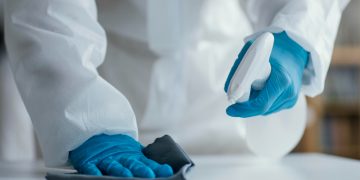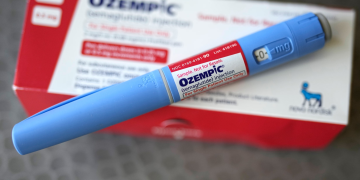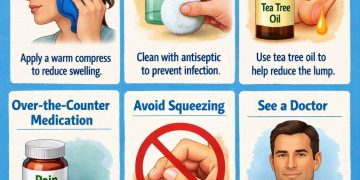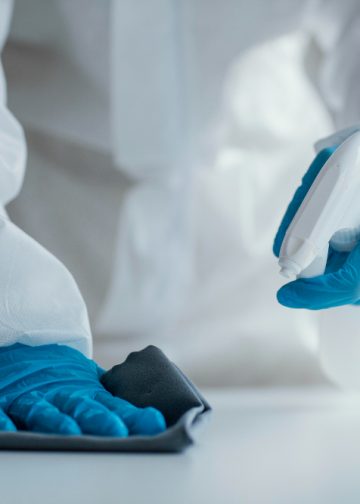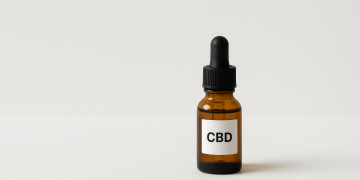It's because you didn't need that “one more beer” or skipped dinner and went straight to happy hour. Or, perhaps you drank too much to cope with work stress. Whatever the case, most of us who enjoy partaking in some holiday fun have experienced the throbbing temples, churning stomach, and mouth dryness that accompanies a hangover.
Usually, when we talk about hangovers, we focus on being dehydrated and how hard alcohol is on your liver as you try to get rid of the effects of the night before. What is often forgotten, though, is how alcohol affects the bacteria in your gut.
How do probiotics work? What do probiotics and alcohol have to do with each other? Does alcohol kill probiotics? How does drinking affect the health of our guts? Can I drink alcohol while taking probiotics? And how do you get ready for your immune system to drink alcohol? You'll find the answers to these questions in this article.
How Do Probiotics Work?
Probiotics are a mix of good bacteria that already live in your body. Most of the time, bacteria are seen as bad because they make you sick. But there are always two types of bacteria in and on your body: good bacteria and harmful bacteria. For good overall health, your body needs good bacteria in probiotics. This good bacteria helps in many ways, like fighting off harmful bacteria once you have too much of it, which makes you feel better.
You can find them in yogurt and other dairy products, among other foods. Traditional medicine has used probiotics for hundreds of years, and Western medicine has started to use them more recently. The main job of probiotics, also called “good bacteria,” is to keep your body in a healthy balance. Imagine it as keeping your body in the middle of the road.
Harmful bacteria get into your body when you're sick and grow in number. This throws off the balance of your body. The good bacteria fight off the harmful bacteria and bring balance back to your body, which makes you feel better.
What Do Probiotics And Alcohol Have To Do With Each Other?
Although it may seem odd to combine alcohol and probiotics, doing so helps protect the gut from alcohol-induced damage and lessen unpleasant sensations. But if you drink too much alcohol, it can also kill probiotics and stop them from growing.
A probiotic supplement can help compensate for some of the damage done by drinking alcohol. It can also help relieve symptoms like nausea, vomiting, diarrhea, and stomach pain. Probiotics may even improve how the liver works in people who drink a lot.
How Does Drinking Affect The Health Of Our Guts?
Most of us feel terrible when we first sober up after a night of drinking: a throbbing head, parched lips, and an upset stomach. Alcohol is diuretic which means it makes you urinate more frequently. This promotes dehydration, which brings on a host of unpleasant side effects. Alcohol is also a toxin that can harm the cells lining the digestive tract.
The effects of alcohol on the human digestive system have been the subject of several scientific investigations. Drinking an excessive amount of alcohol might cause stomach pain. This causes instability in the gut microbiota by removing good bacteria. The following influence of harmful bacteria can cause various health concerns, including digestive problems. But what about people who don't drink much? How does this affect gut bacteria? By definition, binge drinkers consume more than four drinks at each event. It's the world's most popular drink.
One study examined the impact of this drinking on healthy people's gut bacteria. They observed that binge drinking increased blood endotoxins (bacteria poisons in the cell), indicating that bacteria moved from the gut into our system. This was also supported by increased signs of inflammation, meaning one night of heavy drinking can stimulate the immune system.
Can I Drink Alcohol While Taking Probiotics?
Unlike prescription drugs and some over-the-counter medications, there is no known interaction when taking probiotics with alcohol. The amount of alcohol you drink determines the effect on probiotics. For example, suppose you take a probiotic supplement and only drink a little (less than one glass of alcohol per day). In that case, it's unlikely that you'll lose all of your good bacteria. If you eat more than that, you may kill the good bacteria in your gut flora.
When using a probiotic supplement, avoid drinking. If you drink, have one or two, and don't binge. It's also essential to take your probiotic pill at the right time. Alcohol causes inflammation and increases stomach acid. Probiotic bacteria may not act after drinking. Take probiotics in the morning if you plan to drink later. Before drinking alcohol, take probiotics. This allows healthy bacteria to infiltrate your stomach before alcohol causes damage.
How Do You Get Ready For Your Immune System To Drink Alcohol?
If you plan to drink alcohol, the most important thing is to drink responsibly. Maintaining your gut bacteria and increasing your immune system can help lessen the harmful effects of alcohol.
Probiotics
Taking a high-quality probiotic daily is a great way to help you get back to normal after a night of drinking. As a bonus, beneficial gut bacteria also make some B vitamins that we lose quickly when we drink alcohol.
Vitamin C
Vitamin C is an antioxidant that helps our immune system and keeps our livers healthy. We lose vitamin C when we drink, so it's best to take this vitamin before and after drinking.
Fiber
Alcohol is quickly taken in by the whole digestive system. How fast this happens depends on how much food we have in our bodies. Don't drink on an empty stomach. Instead, fill your plate with slow-digesting carbs like vegetables, sweet potatoes, brown rice, and french toast, as well as high protein and healthy fats. Gut bacteria love fiber. Not only will you lessen the effects of alcohol, but you'll also keep your good gut bacteria healthy and fed.
Takeaway
When it comes to the benefits of some alcoholic drinks and the bad things that can happen if you drink too much, alcohol can be a controversial topic. Always do what your doctor or other health care provider says. A probiotic may help balance their gut microbiota and enhance their overall health.






